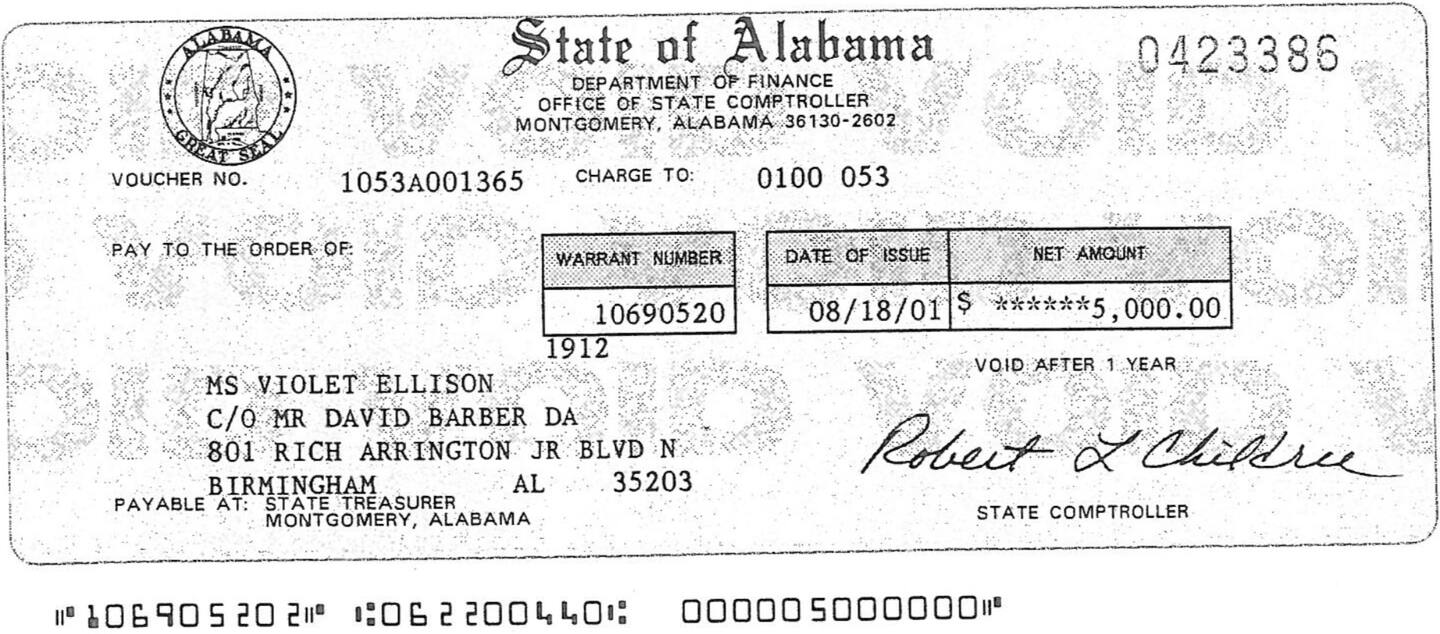As a former Alabama attorney general, I do not say this lightly: An innocent man is on our death row

His name is Toforest Johnson, and Alabama must not execute him. Johnson’s murder trial was so deeply flawed, the evidence presented against him so thin, that no Alabamian should tolerate his incarceration, let alone his execution. This is why I have joined eight former Alabama prosecutors and two former chief justices of Alabama in calling for Johnson’s conviction to be set aside.
In my opinion, two standards must be met to warrant capital punishment. First, the crime must be sufficiently heinous. That certainly applies here: Jefferson County Sheriff’s Deputy William Hardy, wearing his uniform, was shot in the head and killed shortly after midnight on July 19, 1995, in the parking lot of the hotel where he was working a second job as a security guard. However, the second prerequisite has not been met: Before putting someone to death, we must be absolutely certain of their guilt.
In this case, the facts point to the outright innocence of the defendant, Johnson. No physical evidence links him to the crime. Multiple alibi witnesses place him across town at the time of Hardy’s death. The only witness against him was paid $5,000 for her testimony (which was that, while eavesdropping, she overheard someone she thought was Johnson admitting to the crime). The defense was not informed of this payment. Most shockingly, though, the prosecution presented five completely different theories of who killed Hardy at different court proceedings.
I first learned of this case from my son, an attorney, who had heard about it from a colleague. Over the course of my career, I had received many requests from people wanting me to speak out against certain executions. I couldn’t help them because when I looked at the facts, I found the crimes to be heinous and the accused to be guilty beyond any doubt. I assumed Johnson’s case would be the same, and at first I ignored it. My son persisted, though, and when I finally examined the facts, I was so shocked that I could hardly believe that this had occurred in our state’s court system.
In my 56-year career as an Alabama lawyer, only twice have I discovered that an innocent man was sentenced to die. The first case was that of Clarence Norris — the last survivor of the “Scottsboro Boys,” nine Black teenagers accused of raping two White women in Alabama in 1931. I was elected attorney general almost 40 years after Norris was sentenced to death. Convinced of his innocence, I lobbied then-Gov. George Wallace (D) to pardon Norris, which he did in 1976. Johnson’s case is the second time I have been moved to take action.
I know most of the people involved in this case, including judges and attorneys on both sides, and I believe them to be good people. Somehow, though, this case came off the tracks. Good people sometimes make serious mistakes. But it’s not too late to correct them.
Jefferson County District Attorney Danny Carr, whose predecessors in the office prosecuted Johnson 22 years ago, spent nearly nine months reviewing the facts of the case, talking to witnesses and consulting with the family of the victim. He concluded last June that Johnson deserved a new trial, and he asked the court to grant one. Now, so have I.
Before I became attorney general of Alabama, I was an elected district attorney, so I understand Carr’s responsibility to pursue justice. If I were the district attorney and I were presented with the facts as we now know them to be in Johnson’s case, I would not seek to authorize charges. If I were a judge presiding over a case with these facts, I would not let the question of guilt go to the jury. If I were a juror and heard these facts, I would not vote to convict. Given where the case now is, if I worked for the state of Alabama and there was anything I could do to correct this injustice, I would do it immediately.
I have never known anyone in Alabama’s courts or law enforcement who would knowingly go along with executing an innocent man. But unless Johnson is granted a new trial, we risk doing so. This would be an offense against all Alabamians — even those who, like me, believe in the death penalty.
Read more:






